Pariah Nation Hotels and Travel
Editor’s Note: It is still the remarkable first week in November here in the present. This popped up in the old files as a sample of what used to be a normal part of the work day. It was useful to help remind me that things are always a little complicated in The Swamp. Here in the present, Georgia has become center of the world until they sort out two Senatorial run-off elections. That will not be decided until early January, and with the Durham investigation likely to drop in the middle of the Electoral College fight, we could have a new Administration arriving already under indictment and President Trump under arrest. This could be the most fun the old Republic has had. Meanwhile, in the country, things are placid and sweet. For this morning, anyway…
– Vic
05 November 2003
Pariah Nation Hotels and Travel
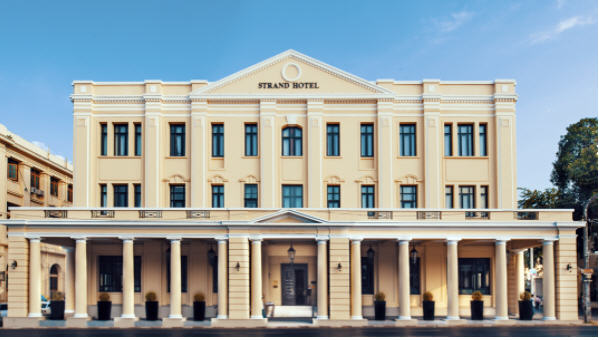
The trip with Congressman Bill was almost breathtaking in scope. I saw him on the Senate side, in the Hart Building. He recognized me and waved me over, telling me about a trip he needed to take. He told me what he wanted to do and who he wanted to see. I nodded, which is a useful thing to do with people like him. Isobel, his chief of staff, gave me some phone numbers. I had a little wrinkle in this thing. It was going to be my last major trip to arrange, and I determined that we were going to stay in the great hotels of the Empires that had once existed there. I took the list of countries Bill wanted to visit and tried to fit the hotels into them.
Let’s see: Rangoon. That would be The Strand Hotel on the Strand Boulevard downtown near the Rangoon River.
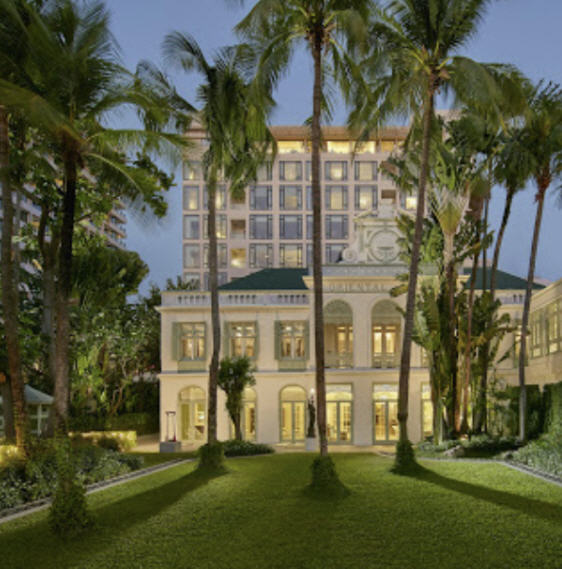
Bangkok. That is a no-brainer. It had to be the fabled Oriental Hotel.
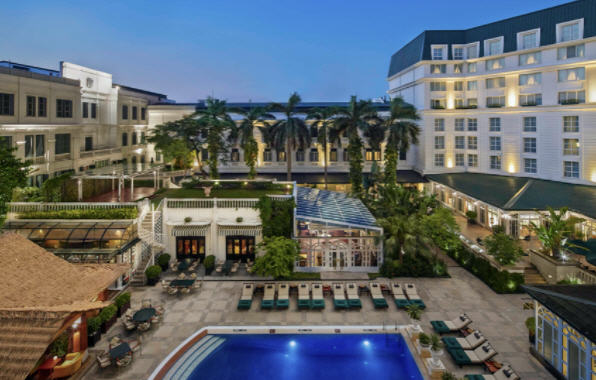
Hanoi. That was a hard one. The capital was just starting to come back from the hardships of the war and the bombing. It was twenty years almost to the day since Saigon fell, the moment of the North’s greatest triumph. So, in that spirit, I selected the Metropole, the old French colonial place just down the street from the Foreign Ministry where Jane Fonda stayed when she tormented our captured pilots.
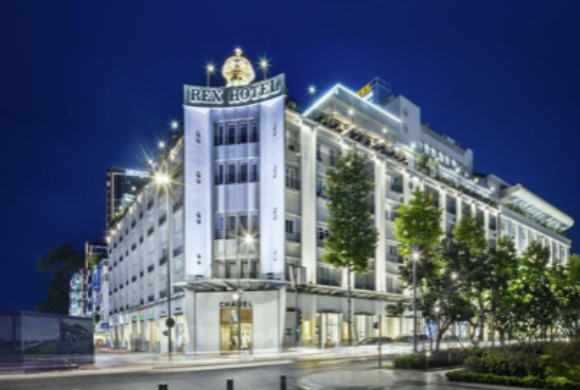
We were to head south to Ho Chi Minh City- formerly Saigon- next, so that was a no-brainer, too. There were some new places that had opened to accommodate the European business community, but I am a sentimental slob. I picked The Rex Hotel, the main billet of the American Military Assistance Command, and the site of the wartime daily press briefings they called The Five O’clock Follies.
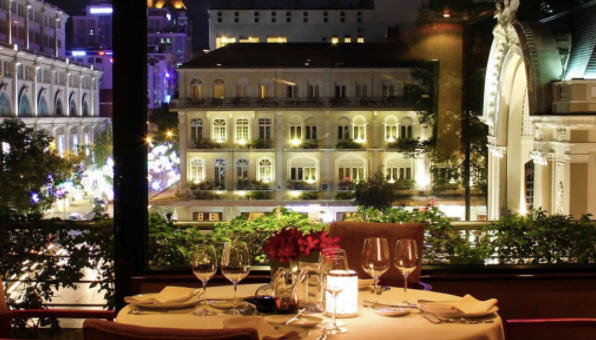
The Rex was kitty-corner from The Caravel, which was no longer a tourist hotel but had been The Place to have a drink after the briefing and before filing copy for back home. Or enjoy the rooftop bar at the end of a busy day at war and watch the fiery arc of Viet Cong rockets heading for Tan San Nhut Air Base.
Hong Kong. Let’s see, it is a couple days in Hong Kong, so why not just stay at the flagship hotel of the whole Empire? So what if it was above the per diem rates for government travel. It would have to be a stay at The Peninsula Hotel.
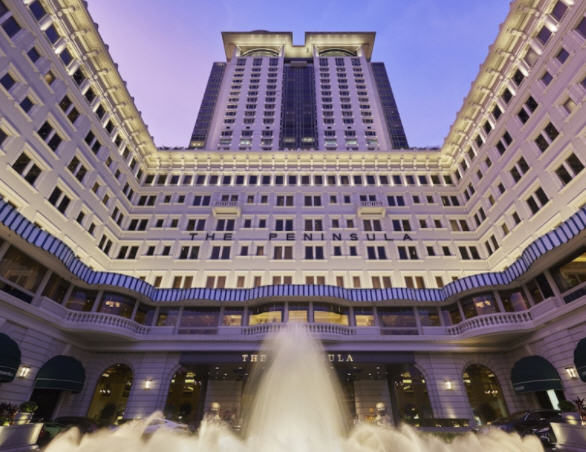
We were not staying overnight in the PRC, only meeting the country team in transit, and Pyongyang was a mystery in more than one regard. We would have to rely on the tender mercies of the North Koreans. The last time Bill had been in the North they kept him sequestered in a countryside villa where he was held when not meeting Government officials. That one was out of my control.
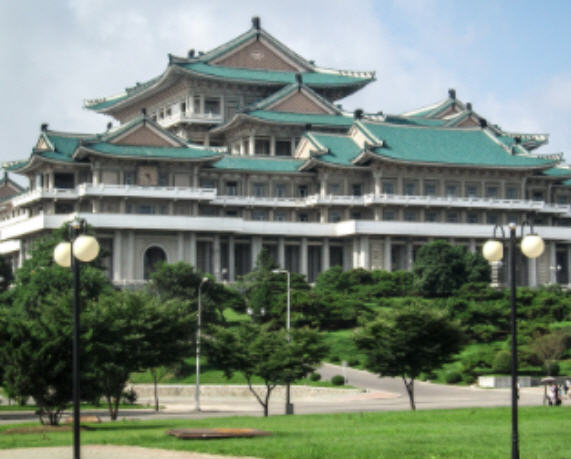
Coming out again we had to make nice with the South Koreans. I would normally have selected the luxury Shilla Hotel. It was suitably grand, at least in the public areas, but in my experience, the rooms were a little rigid and the chairs were not comfortable. I had stayed there and it was not convenient to the Embassy or the Foreign Ministry. The Hilton would just have to do. Not imperial, but necessary.
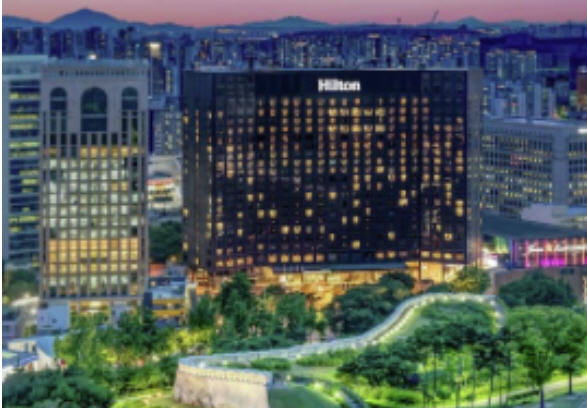
From there it was drafting a concept and linking it all together to see if our support team could make the itinerary work. In this case, it was sitting down with the Travel Office, a little cubbyhole on the fifth floor of the Pentagon around the corner from the Legislative Affairs shop. The wonderful and long-suffering woman who worked there had made a career of dispatching her officers out into the wide world while making sure we followed the regulations for what was appropriate. With a working list of countries and hotels in hand, we huddled at the desk and logged onto the SABRE computer system that provides on-line access to commercial airline schedules. Was it even possible to link the hotels together?
If one is to go to Burma, how would one do it, if one was to make a quick stop to consult on the island of Taiwan before visiting Burma, Thailand, Vietnam, Hong Kong, China and both Koreas? Her fingers flew on the keyboard. The SABRE computer gave us a wild grab bag of airlines to make the connections.
It began to come together. Across the pond heading west it was super first class on Eva Air, a subsidiary of the Taiwanese Evergreen company that treated us very well. It flew west all night from LA and landed in Taipei in the early morning. Royal Thai air would whisk us on from there to Rangoon, then Myanmar Air could get us back to Bangkok. In Bangkok we could get the Embassy C-12 to fly up country to visit the refugees in question.
Then, Royal Thai to Vietnam and the connection between Hanoi and Saigon. Cathay Pacific would jet us to Hong Kong from Saigon, and then again on to Beijing. From there it was dicey. You had to fly Air Koryo, North Korea’s national carrier. That was the only way in and out. From Beijing we could get a KAL down to Seoul and leaving the capital to come home there was finally a United heavy that would get us as far as Chicago. I frowned. There was no direct flight from Seoul to Washington. According to joint travel regulations, we could only justify First or Business Class when we were out of the country. Damn.
That was a heck of a note, finishing in Economy. But the good news was that we could pull it off. All I had to do was get the Congressman to sign off on the concept and start filling in the details. After all, what could go wrong?
There was the scut work first. The first thing you need to do the trip is the letter from the Chairman of the Committee requesting the assistance of your Department in accomplishing legislative needs. That is the quid pro quo, and without it you cannot provide service to the Congress. You would think it would be easy, but based on the amount of time it takes to plan these things, you are often still waiting for the letter when you have the tickets in hand. But once someone tells you they want to go somewhere, you start making calls.
With that letter in hand, you can call the State Department desk that enables the liaison with the posts and stations overseas. Since we normally only traveled when Congress was in recess for holiday, they wanted to see the delegation show up like they wanted the plague. One Ambassador had the courage to say so one time, and the Committee cut the State Department appropriation for that Embassy in retaliation. So State is normally pretty helpful, having learned the painful lesson.
So early on I am trying to talk to people 13 time-zones out to ensure that they know when we are coming and what the Congressman or staffer (there are CODELS and STAFDELS with differences in protocol) wants to see when they get there. The time difference is a problem. If you walk into the office at 0700 in the morning, it is already eight at night where you are going, so calls have to be made early and late and never in the middle.
According to regulation, we are supposed to fly American Flag carriers whenever possible, and if the itinerary does not permit it, special dispensation is required to fly foreign airlines. That is just one of the things you need to secure, pro forma, really, though that phrase goes along with “de facto” as one of the ruling factors of Congressional travel.
So, you are talking to the action officers at the embassies, the private advocates who have access to the Congressman, and a bunch of bureaucrats in Washington who rule the institutions with whom you have to work. Once you have the realm of what is possible, you send a draft itinerary back to the Congressman to see if it is acceptable, change what he wants, and start to nail things down. Along the way you have secured the black diplomatic passports and start running them around town. In the case of the Pariah Nation World Tour, the hard ones were the visas for Burma, PRC, Vietnam and North Korea.
South Korea was easy, and so was Hong Kong, and Thailand was not hard. Taiwan was not going to stamp the passports, since we were later going to transit the PRC and that would be embarrassing, and the Brits were very accommodating on Hong Kong, which they were going to continue to own until 1998.
On the way out, first leg, I had to get the congressman to a strange tarmac meeting with First Lady Hillary Clinton, though none of us working class were invited to attend. The two of them had an energetic meeting near the airplane, and in commemoration, the airline gave us strange little glass cows with golden heads in jewel cases. Odd things, and one of them is on a shelf here somewhere. We met an American (Christopher Lafleur) and a section chief form the Department of North American Affairs from the Taiwanese Ministry (Donald C.O. Lee) in a private suite which I’m sure was bugged at Chang Kai-shek International. They gave us a perspective on cross-straits politics and where the issues were. The biggest deal was the PRC’s concern that the Taiwanese would declare that there was no “One China” but things were fairly relaxed at the moment, since the mainland wanted to ensure that Hong Kong’s reversion stayed on track.
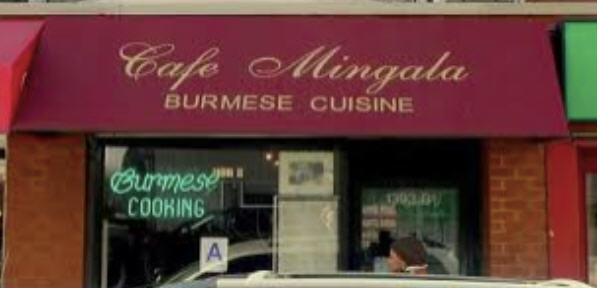
Then, a bit bleary, we went to the coffee shop and met Mimi Myint-hu, a first-generation Burmese woman whose family owned the Mingala West Restaurant on Amsterdam Avenue in New York. She was connected to the network of overseas Burmese who were committed to the overthrow of the SLORC, and the release of The Lady. I had a portfolio with issues for each of the countries we were going to visit and who the players were we wanted to talk to. I could never forget that Bill had an agenda to work in all these places, but that was his issue and not mine. I just had to make sure the cars drove, the hotels turned down the covers and the airplanes flew to the right places.
We had letters from The Lady’s husband, who had left the country to visit the UN and was denied a visa to go back. He was ill and he missed his wife, though he recognized that her historic mission to fulfill the legacy of her father must go forth. It was bigger than the both of them.
We were staying at The Strand. It was built in 1901, as one of a grand group of hotels owned by the Sarkies brothers. It is considered a national landmark and was renovated in the mid-90s to reflect the grandeur of the high colonial age of the 1920’s and 1930’s. It is all teak and dark wood. It has 32 guest rooms and plenty of personalized service. I loved it.
I turned up the air conditioning in my room and watched the condensation obscure the windows. The Strand naturally is located on Strand Road, close by the Yangon (Rangoon) River in the city’s main commercial and diplomatic district. From Yangon airport, it’s less than 30 minutes by Embassy sedan to The Strand, and I am absolutely confident there is no finer place in the world to hang out than on one of the rattan chairs in the spacious lobby, the central core of the hotel open all four floors to the roof. Congressman Bill enjoyed a cigar in the evening, fine Cubans which he dispensed when he was relaxing, and a rich local beer to go along with it as he talked with Calvin, his faithful staffer from the Committee.
Calvin is an African American who retained the powerful build of the collegiate wrestler he had been. He was a clothes horse, so you can imagine what a challenge these extended trips were. It made you realize why they had servants and steamer trunks in the old days. Calvin had shared some interesting times with Bill in some strange corners of the world, huddled by airstrips talking to guerilla leaders or staying in the best hotel in the capital of a ruthless dictatorship.
Travel makes good partners, and Calvin was one of the best. F you are ever in a meeting in a foreign land with the senior representative of a military coup, and the boss decides to walk out into the soggy sunshine, he is one of the guys you want to do it with.
All the hotels worked, and most of the airlines did, too. The stuff I was not aware of- literally, “had no need to know” didn’t include normalizing relations with Vietnam, now known as the SRV. I was just the travel guy, though chatting with the SRV President and an assortment of North Korean apparatchiks was a little strange. But the key was the trip worked. We got Aung San Suu Kyi, 1991 Nobel Peace Prize winner, sprung from house arrest, although when she came to power she turned out to be another war criminal. We made some minor progress on nuclear issues in Pyongyang. But the most important thing was we never ran out of gas, the airplanes all went where they were supposed to, and the hotels were awesome.
One tip: avoid eating seafood in North Korea, even if it is a celebratory last meal. It will make the long trip home a little easier and avoid walking the aisles of a disappointing economy class jet in mild abdominal disquiet.
Copyright 2003 Vic Socotra
www.vicsocotra.com
